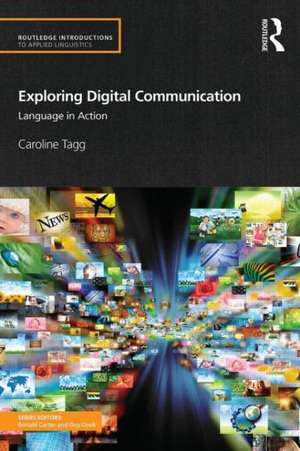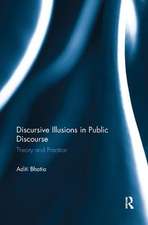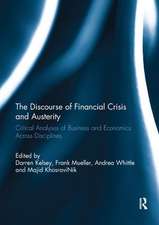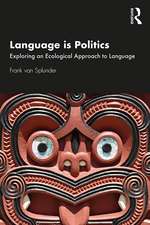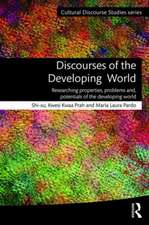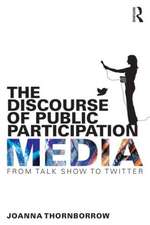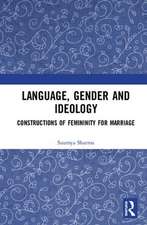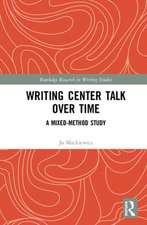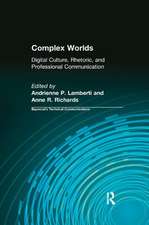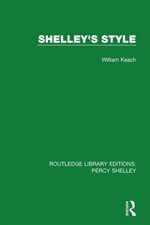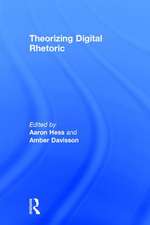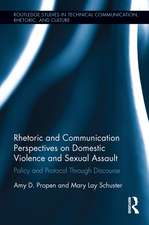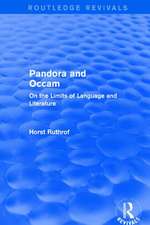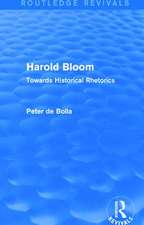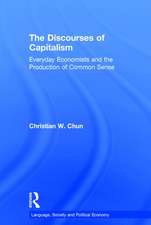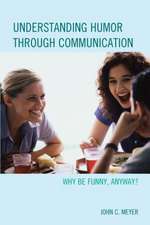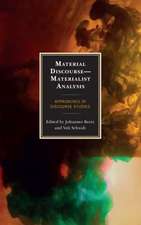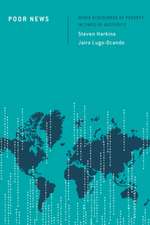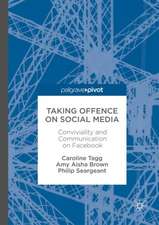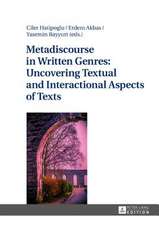Exploring Digital Communication: Language in Action: Routledge Introductions to Applied Linguistics
Autor Caroline Taggen Limba Engleză Paperback – 23 feb 2015
Routledge Introductions to Applied Linguistics is a series of introductory level textbooks covering the core topics in Applied Linguistics, primarily designed for those beginning postgraduate studies or taking an introductory MA course, as well as advanced undergraduates. Titles in the series are also ideal for language professionals returning to academic study.
The books take an innovative 'practice to theory' approach, with a 'back-to-front' structure. This leads the reader from real-world problems and issues, through a discussion of intervention and how to engage with these concerns, before finally relating these practical issues to theoretical foundations."
Exploring Digital Communication "aims to discuss real-world issues pertaining to digital communication, and to explore how linguistic research addresses these challenges. The text is divided into three sections (Problems and practices; Interventions; and Theory), each of which is further divided into two subsections which reflect linguistic issues relating to digital communication.
The author seeks to demystify any perceived divide between online and offline communication, arguing that issues raised in relation to digital communication throw light on language use and practices in general, and thus linguistic interventions in this area have implications not only for users of digital communication but for linguists' general understanding of language and society.
Including relevant research examples, tasks and a glossary, this textbook is an invaluable resource for postgraduate and upper undergraduate students taking New Media or Communication Studies modules within Applied Linguistics and English Language courses.
| Toate formatele și edițiile | Preț | Express |
|---|---|---|
| Paperback (1) | 416.09 lei 43-57 zile | |
| Taylor & Francis – 23 feb 2015 | 416.09 lei 43-57 zile | |
| Hardback (1) | 1005.01 lei 43-57 zile | |
| Taylor & Francis – 27 feb 2015 | 1005.01 lei 43-57 zile |
Preț: 416.09 lei
Nou
79.62€ • 83.34$ • 66.27£
Carte tipărită la comandă
Livrare economică 31 martie-14 aprilie
Specificații
ISBN-10: 0415524938
Pagini: 300
Ilustrații: 3 black & white tables
Dimensiuni: 156 x 234 x 16 mm
Greutate: 0.45 kg
Ediția:1
Editura: Taylor & Francis
Colecția Routledge
Seria Routledge Introductions to Applied Linguistics
Locul publicării:Oxford, United Kingdom
Public țintă
Postgraduate and UndergraduateCuprins
Caroline Tagg
Introduction: why focus on language in exploring digital communication?
Section A: Problems and Practices
I. Digital language and literacy
1) Is digital communication detrimental to grammar and spelling?
2) Has the internet changed how we read?
3) Is the web devaluing what it means to be an author?
4) Does the internet further the global dominance of English?
II. Social issues and social media
5) From anonymity to self promotion: are we ever ourselves on social media?
6) What are the implications of social media for privacy?
7) Is social media making us less social?
8) What can be done about trolls and online bullying?
Section B: Interventions
I. Digital language and literacy
9) Why text messaging may be good for literacy
10) Exploring digital literacies
11) Using the web as a space for writing
12) Using more than one language online
II. Social issues and social media
13) Performing identity online
14) Audience design on social media
15) Constructing virtual communities
16) The linguistics of online aggression
Section C: Theory
I. Digital language and literacy
17) Multiliteracies
18) Translanguaging via a superdiverse internet
19) Heteroglossia
II. Social issues and social media
20) Identities in interaction
21) Sociolinguistic communities
Notă biografică
Recenzii
"This book is a welcome contribution to the growing literature on language use and digital practices. Focusing on compelling examples taken from diverse forms of digital media, Tagg engages with important social issues ranging from privacy, to isolation, to the increasingly blurred boundaries between online and offline communication. Comprehensive in scope, erudite, and accessible in style, this book will certainly be of interest to scholars and students of communication and language studies." Camilla Vásquez, University of South Florida, USA
"The innovative approach devised by the series editors will make this series very attractive to students, teacher educators, and even to a general readership, wanting to explore and understand the field of applied linguistics. The volumes in this series take as their starting point the everyday professional problems and issues that applied linguists seek to illuminate. The volumes are authoritatively written, using an engaging 'back-to'front' structure that moves from practical interests to the conceptual bases and theories that underpin applications of practice.' Anne Burns, Aston University, UK
Descriere
Routledge Introductions to Applied Linguistics is a series of introductory level textbooks covering the core topics in Applied Linguistics, primarily designed for those beginning postgraduate studies or taking an introductory MA course, as well as advanced undergraduates. Titles in the series are also ideal for language professionals returning to academic study.
The books take an innovative 'practice to theory' approach, with a 'back-to-front' structure. This leads the reader from real-world problems and issues, through a discussion of intervention and how to engage with these concerns, before finally relating these practical issues to theoretical foundations."
Exploring Digital Communication "aims to discuss real-world issues pertaining to digital communication, and to explore how linguistic research addresses these challenges. The text is divided into three sections (Problems and practices; Interventions; and Theory), each of which is further divided into two subsections which reflect linguistic issues relating to digital communication.
The author seeks to demystify any perceived divide between online and offline communication, arguing that issues raised in relation to digital communication throw light on language use and practices in general, and thus linguistic interventions in this area have implications not only for users of digital communication but for linguists' general understanding of language and society.
Including relevant research examples, tasks and a glossary, this textbook is an invaluable resource for postgraduate and upper undergraduate students taking New Media or Communication Studies modules within Applied Linguistics and English Language courses.
